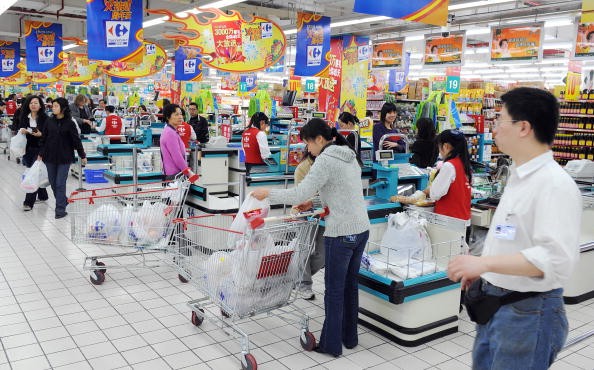The efforts of Alibaba Group Holding and JD.com when it comes to grocery shopping is now changing the behavior of Chinese consumers who are relying on neighborhood markets to shop.
According to iResearch, Chinese consumers spent in 2016 approximately 90.5 billion yuan buying fresh produce online, which is an 86 percent jump year-over-year.
Alibaba and JD.com, China's top e-commerce giants, started introducing a new form of courier service so that they can entice consumers to do their grocery shopping through their online platforms.
Alibaba and JD.com send contractor couriers the order information for the list of goods that the customer wants. The courier will then send this list to a personnel who is either at the supermarket or at a convenience store so that he/she can bag all the goods. Couriers then ride their electric bikes and pick up the bagged order for delivery.
Chinese consumers who are interested in the service can just put their orders through an app on their phones. Deliveries are door-to-door, and consumers will receive the order within an hour.
E-commerce companies and courier startups are earning money through this courier service method by charging delivery fees for every order. They will also get sales commissions from retailers.
Both Alibaba and JD.com are providing Chinese startups not only the platform to handle delivery orders and data efficiently, but also with capital to help them with finances.
Dianwoda, a Hangzhou-based startup, has received $150 million through a funding round led by Alibaba. This helped the startup to hire nearly one million contractor couriers that are spread in more than 100 cities to deliver orders.
New Dada, a Shanghai-based startup, is invested by JD.com, DST Global and Wal-Mart Stores. It currently hires over three million contractors spread around 300 cities.
Startups and their investors are basing the potential of the online grocery shopping market to meal-delivery services. A survey from the government showed that 194 million Chinese users use their smartphones to order meals online, a 17 percent increase year-over-year.



























